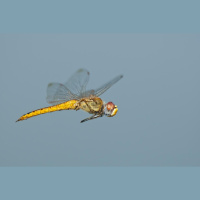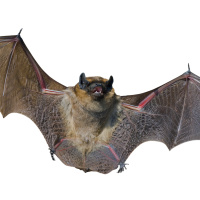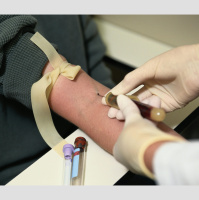Sinopsis
Leading science journalists provide a daily minute commentary on some of the most interesting developments in the world of science. For a full-length, weekly podcast you can subscribe to Science Talk: The Podcast of Scientific American . To view all of our archived podcasts please go to www.scientificamerican.com/podcast
Episodios
-
Quasar Winds Clock In at a Fifth of Light Speed
28/03/2016 Duración: 02minQuasars can shape the evolution of their galaxies, by blasting 135-million-mph winds. Christopher Intagliata reports.
-
The Fastball Gets Its Scientific Due in a New Documentary
25/03/2016 Duración: 02minThe new movie Fastball dissects the pitch from the perspective of pitchers, hitters, umpires—and scientists, who talk about everything from the physics governing the trajectory of the ball to the neuroscience of the batter’s perception and reaction—including how the ball can appear to vanish.
-
Garbage Pickings Get Storks to Stop Migrating
23/03/2016 Duración: 01minSome white storks have stopped migrating from Europe to sub-Saharan Africa in the winter, because of the availability of food in landfills.
-
Smart Glass Goes from Clear to Cloudy in a Jolt
22/03/2016 Duración: 03minResearchers say their prototype is cheaper and easier to make than other smart glass, and since it's flexible and foldable, could be used for camouflage. Christopher Intagliata reports. Learn more about your ad choices. Visit megaphone.fm/adchoices
-
Cuba–U.S. Thaw Should Ease Scientific Collaborations
21/03/2016 Duración: 02minCornell Laboratory of Ornithology researcher Eduardo Inigo-Elias, a veteran of efforts to work with Cuban researchers, talks about what improved relations between the U.S. and Cuba could mean for science and conservation.
-
African Park Comeback Offers Ecological Optimism
18/03/2016 Duración: 04minA decade of modest financial investment has revitalized Mozambique's Gorongosa National Park, explains biologist Sean B. Carroll in his new book The Serengeti Rules: The Quest to Discovery How Life Works and Why It Matters. Learn more about your ad choices. Visit megaphone.fm/adchoices
-
Bring a Musician to Untangle Cocktail Party Din
17/03/2016 Duración: 02minMusicians are better at separating out one meaningful audio stream from a combination, a skill that could help decipher a single conversation in a crowd. Christopher Intagliata reports.
-
Our Noise Bothers Overlooked Seafloor Critters
15/03/2016 Duración: 02minCreatures that live on the seafloor play vital roles in marine ecosystems, but human-made noise can alter their behaviors.
-
Eavesdrop on Echolocation to Count Bats
14/03/2016 Duración: 02minResearchers created a model that can accurately predict a cave's bat populations using audio alone. Christopher Intagliata reports.
-
Underground Eruptions Could Cause Quakes Months Later
11/03/2016 Duración: 03minWhen the Nyiragongo volcano erupted in January 2002, it set the geologic stage for earthquakes nine months later. Julia Rosen reports. Learn more about your ad choices. Visit megaphone.fm/adchoices
-
Raw Stone Age Meals Got Tenderizing Treatment
10/03/2016 Duración: 03minPounding and slicing meat and vegetables would have saved our ancestors millions of tough chews a year—potentially explaining the evolution of smaller jaws and teeth. Christopher Intagliata reports. Learn more about your ad choices. Visit megaphone.fm/adchoices
-
Fear of Spiders Makes Them Look Bigger
09/03/2016 Duración: 03minArachnophobic study subjects estimated the size of spiders as bigger than did people who do not fear the eight-legged beasties. Jason Goldman reports. Learn more about your ad choices. Visit megaphone.fm/adchoices
-
Pro Baseball Player Tech Avatars Could Be a Hit
08/03/2016 Duración: 01minSmart Bat sensor captures swing data and reenacts the motion on a smartphone app. Larry Greenemeier reports.
-
This Dragonfly Outmigrates Monarchs
07/03/2016 Duración: 02minThe dragonfly Pantala flavescens can travel 9,000 to 11,000 miles, and may interbreed across the globe. Christopher Intagliata reports.
-
Gators Guard Birds That Nest Nearby
04/03/2016 Duración: 01minWading birds in the Everglades prefer to nest near resident gators for protection. And the arrangement appears to be mutually beneficial. Christopher Intagliata reports.
-
Space "Treasure Map" Guides E.T. Search
03/03/2016 Duración: 03minA pair of astrophysicists advise searchers of intelligent life to look in the narrow band of galactic sky from which any alien observers would see Earth transit the sun—a method we use to detect exoplanets. Christopher Intagliata reports. Learn more about your ad choices. Visit megaphone.fm/adchoices
-
Milgram's Conformity Experiment Revisited in Lab and on Stage
02/03/2016 Duración: 02minA conversation following a play about the famous Milgram experiments about conformity and authority included mention of a just-published new version of the test.
-
Bats Beat Ebola with Hypervigilant Immunity
29/02/2016 Duración: 01minThe immune systems in bats are in a continuous state of activation, which may explain why they can carry viruses like Ebola without harm. Christopher Intagliata reports.
-
Cutting Carbon Pollution Could Save Health Care $
25/02/2016 Duración: 03minSome 300,000 premature deaths could be avoided by 2030 if the U.S. abides by the ambitious Paris Climate Agreement, according to a new analysis. Christopher Intagliata reports. Learn more about your ad choices. Visit megaphone.fm/adchoices
-
Billion Sun–Bright Events Leave Radio Wave Clues
24/02/2016 Duración: 02min“Fast radio bursts” detected here on Earth last only a thousandth of a second, but are the result of a faraway source briefly shining a billion or more times brighter than our sun.































